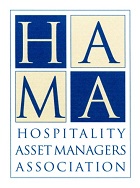_1746521442.jpg) |
HOTREC: EU CO-LEGISLATORS MUST DELAY ANY FINAL AGREEMENT UNTIL MEANINGFUL SIMPLIFICATION IS TRULY ACHIEVED
While supporting the proposal's objective of ensuring reliable claims, we are deeply concerned that trilogue negotiations have so far failed to deliver any meaningful simplification of major burdens. |
Category: Europe - Industry economy
- Sustainability - Associations and Unions
This is a press release selected by our editorial committee and published online for free on Monday 23 June 2025
The current provisions would create massive and excessive bureaucracy, which is not needed to achieve the proposal's primary objective.
Addressing these concerns requires determined action and major amendments to the latest text, which is incompatible with a rushed agreement in just a few days. We urge the EU co-legislators to resist the temptation to secure a fast agreement at any cost in the upcoming trilogue, and to take sufficient time to deliver meaningful reduction on administrative burden.
Our organisations collectively represent more than 3,2 million companies in the retail and hospitality sectors across Europe, providing more than 19 million jobs.
ur sectors are at the heart of the EU's economy, its local communities, and are major drivers for sustainability. As highlighted on several occasions, our sectors have identified major issues with the proposal that must be fixed. This to ensure that the Directive does not create hugely inefficient and counterproductive additional red tape for companies across Europe.
Companies' willingness to invest in sustainability is intrinsically linked to their capacity to market the result of their investments to their customers.
A rushed agreement would make the Greens Claims Directive both an obstacle to competitiveness and a barrier to sustainability,thus risking innovation, as its regulatory requirements would entail increased costs, burdens and legal uncertainty, outweighing the business case for investing in sustainability and marketing these investments to consumers.
Therefore, we urge EU negotiators to delay concluding the trilogue negotiations until the proposal has been significantly simplified, in order to preserve the business case for companies to invest in sustainability (and related claims), reward innovation, minimise unnecessary costs and preserve competitiveness.
We caution that if an agreement on the Green Claims Directive is finalised without effectively addressing these concerns through real simplification and burden reduction, a strong message would be sent to businesses that the simplification agenda is no longer an EU priority.BackgroundAt least 3 issues must be fixed to deliver meaningful simplification (further details here):- Article 3: The substantiation procedure for explicit environmental claims and labels is too complex for a wide set of environmental claims. A simplified procedure with lighter requirements is needed.
- Article 10: National verification procedures create unnecessary administrative complexity, costs and delays. These must be abolished. Traders should be able to solely rely on simple requirements, without further procedures.
- Article 8: The administrative procedure for approving future labelling schemes must be eliminated. Any private or public scheme that is substantiated and verified should be systematically allowed in the EU Single Market, without having to demonstrate in a superfluous administrative process that the scheme meets an abstract ‘added value' criterion.About the AssociationsEuro Coop unites 19 national organisations of consumer co-operatives in Europe, representing 30 million consumer-members, 7,000 local co-operatives, 700,000 employees and operating 94,000 points of sale. Consumer co-operatives are enterprises with a distinct model of ownership and governance, which, since 1844, have been operating according to the co-operative principles such as voluntary and open membership (Principle 1) and democratic member control (Principle 2) based on the rule of 1 member-1 vote. Being owned and managed by their members, consumer co-operatives have an inherent responsibility far-reaching past the cash register, such as care for the community (Principle 7) and all its social, economic and environmental facets
HOTREC is the umbrella association of hotels, restaurants, bars and cafés in Europe. It brings together 46 national associations in 36 countries and serves as the voice of European hospitality. The industry counts 2 million businesses, almost all of which are small and medium-sized enterprises (SMEs), providing over 10 million jobs and contributing to 3% of the EU's GDP. HOTREC's mission is to represent and champion the hospitality industry's interests towards EU and international institutions, foster knowledge sharing and best practices among its members, promote innovation and act as a platform of expertise for the hospitality sector.
Independent Retail Europe is the European association that acts as an umbrella organisation for groups of independent retailers in the food and non-food sectors. Our members are groups of independent retailers, associations representing them as well as wider service organizations built to support independent retailers. Independent Retail Europe represents 24 groups and their 501.000 independent retailers, who manage more than 764.000 sales outlets, with a combined retail turnover of more than 1,411 billion euros and generating a combined wholesale turnover of 604 billion euros. This represents a total employment of more than 6.400.000 people.
RURALTOUR, the European Federation of Rural Tourism, is the professional tourism trade organisation representing a sector with an estimated 500.000 micro and nano enterprises and about 6 million bed places. It includes 28 professional and trade organisations from 25 European countries. The represented services include hospitality from rural Bed & Breakfast and self-catering, short term rentals in private homes or farms, to small family-run rural hotels or guesthouses, as well as rural gastronomy and active tourism services.
|
|






_1746521442.jpg)
